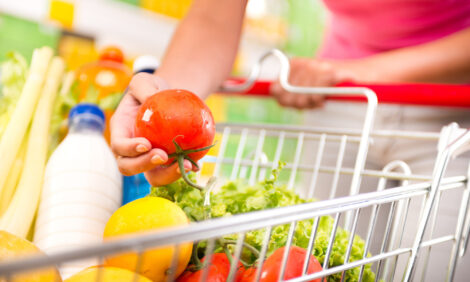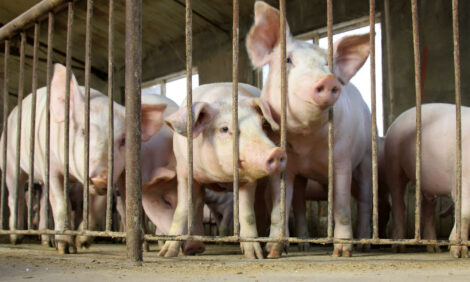



Pork Crisis: Wake-up Call on Food Dependency
EU - Europe's livestock farming crisis is a wake-up call that the region could become dependent on ever increasing food imports as farmers, unable to pass on soaring feed costs to supermarket shoppers, are forced out of business.According to EurActiv.com, farmers across the 27-country EU bloc say many are deeply in the red after a surge in feed costs, largely driven by bad weather and worries of food inflation, and fear herds will shrink and many farms fall into disuse in the coming months.
In Spain, the COAG union estimates half the country's 700,000 livestock farmers could be out of work by the end of 2011, adding to what is already the EU's highest jobless rate.
French President Nicolas Sarkozy highlighted food security during a chaotic week for North Africa, which has seen unprecedented anti-government protests in Egypt and continuing unrest in Tunisia, partly fuelled by higher food prices.
Algeria, which has seen its own unrest linked to food prices, this week stepped up grain purchases, buying almost a tonne of wheat to secure adequate stocks, prompting another leg up in already tight wheat prices.
COAG says that the crisis over feed costs, swept higher as wheat prices surge to 29-month highs, shows that reform of the EU's Common Agricultural Policy due from 2014 is more important than ever to guarantee food supplies to 500 million consumers.
Many farmers fear the EU may introduce deep cuts to the much-criticised €55 billion CAP and abolish tools for intervention in agricultural markets.
"It is so important that the next CAP reform reinforces existing EU market management mechanisms and makes more budget available to meet new needs and risks facing European farmers, particularly in the livestock sector," a COAG report on the impact of feed costs said.
"Dismantling our productive system in Europe and Spain makes us dangerously dependent on imports," said Miguel Blanco, head of organisation at COAG.
"Dependency on strategic sectors such as energy, and above all food, is simply suicidal in the medium and long term."
His comments for more protection for farmers chime with President Sarkozy's, who this week launching France's agenda for its G20 presidency said: "How can you explain that we regulate money markets and not commodities?"
Pig breeders in Europe are taking the brunt of the feed crisis. They account for most EU meat production and 60% of their costs are due to animal feed.
Barney Kay, general manager for Britain's National Pig Association, said farmers in England are currently losing about £20 a pig, allowing for finance charges, depreciation and reinvestment, due to soaring feed costs.
"We're in deep trouble," Kay said, adding that farmers were considering leaving the industry if prices do not improve.
French pig farmers took to the streets on Wednesday (26 January) in Paris to protest against rising feed costs and the threat of price pressure from a German market reeling from a dioxin scandal.
"There is a real wave of panic, that's what we're coming to voice," Jean-Michel Serres, president of pig farmers' group the FNP, said ahead of Wednesday's demonstration.
In Germany, the discovery of the toxic chemical dioxin in animal feed has made matters worse by triggering international health alerts and prices have collapsed in what is Europe's biggest pig producer.
Germany's government has announced low interest loans will be available to livestock farmers hit by the alert.
"I think there is a fair degree of confidence that export markets will be taken back once the dioxin alert hopefully quietens down," one livestock trader said.
On Monday (24 January) the EU executive said it would provide short-term help to European farmers by covering the cost of storing pork for between three and five months, in the hope that reducing supply to the market will increase prices.
The measure would improve cash-flow for farmers, said Jorge de Saja, director of the CESFAC feed compunders' association in Spain, home to Europe's biggest animal feed industry.
"It's good, because it shows that they [the Commission] have really understood that we have a problem," he said. "It is also good because it comes at a time when what sort of livestock industry we want is under review."
Producers also note that the EU's exportable surplus of pigs outside the bloc is a slender 7 per cent of animals slaughtered.
"In [the] pig sector there is a difficult situation at the moment, prices are bad and the competition level worldwide is growing with South America/Argentina emerging," said Albert Jan Maat, head of the Dutch farmers union.
And at home there is no respite from a retail sector which will not allow meat prices to rise.
"It is evident that there is a huge imbalance in negotiating power so farmers take no part in setting prices and nor can they pass costs down the food chain," a COAG report on the livestock crisis said.







